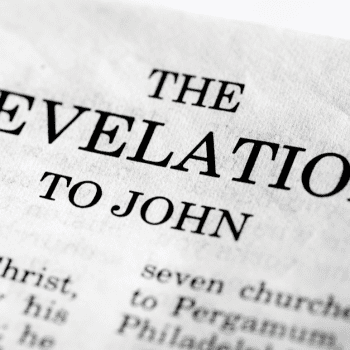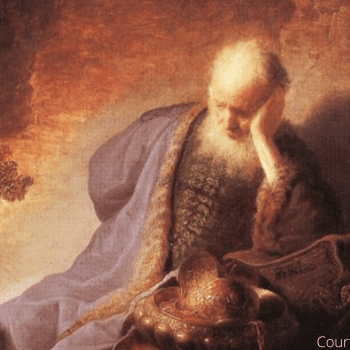Monday: Read Romans 1:1-17
Well, you may be excited to get into a book as rich as the book of Romans. Or you may be intimidated. Or you may be concerned that the theology of Romans will bore you or go over your head. I suppose all are legitimate emotions.
Romans is perhaps the richest of all Paul’s writings. In order to understand it well, we will likely need to purge ourselves from what we have been taught. Simply put, Romans has been taught, since the time of Luther, that the problem which Paul was addressing was Jewish legalism (that is: just as Luther was dealing with the legalism of the Catholic church, so Paul was dealing with Jewish legalism). We now know that this is not a fair representation of Judaism (we will address this in detail on the podcast in a few weeks).
If we were to summarize Paul’s argument (at least his argument in chs 1-4), we would say that through Jesus God has been faithful to His covenant promises to Abraham.
A key to understanding Paul is that when he talks about God’s righteousness, he means that God has been faithful to His covenant promises. He did what He promised.
We could then add to this understanding the fact that it was through Jesus’ faithfulness that God has brought about a single family (made of Jews and Gentiles [aka the nations]), and that this family is characterized by faith.
Questions to ponder/discuss:
- Read Rom 1:1-17 carefully. Notice that Paul refers to the Gospel in 1:1. Make a list of what he says about the Gospel: to whom was it preached? What is the gospel about?
- What does He say about Jesus in 1:1-4?
- Note that the Gospel goes to the Jew first (1:16). Why was this?
- What do you think Paul means when he says that he is not ashamed of the Gospel? What is there to be ashamed of? Are you ashamed of it?
Tuesday: Read Romans 1:18-32
This section is about God’s righteousness: note 1:17 and 3:21 frame this section. The context is a courtroom scene in which God is the judge and humanity is in the dock. Rom 1:18-32 is primarily directed at the Gentiles (nations). They know of God (21) and yet they disobey (32). The result is that God gave them over to their ways (24, 26, 28).
Humanity’s sins are the result of God allowing them to do what they do. They not only do it, but they give approval to those who do so (32). NT Wright observes, “It is one thing to insist on walking south when the compass is pointing north. But to ‘fix’ the compass so that it tells you that the wrong way is the right way is far, far worse. You can correct a mistake. But once you tell yourself it wasn’t a mistake there’s no way back” (Wright, After you Believe, 153)
Questions to ponder/discuss:
- The problem here is intensified by the fact that we not only sin but we call it good (32). Overcoming this is nearly impossible because the Gospel speaks to the problem of humanity, but if we do not believe there is a problem, then we have no need for the Gospel.
- Here again, we must remind ourselves not to read the text as though Paul is talking about “them” and not “us.” This was and to some extent is us. Paul will say, “God, being rich in mercy, because of His great love with which He loved us, even when we were dead in our transgressions, made us alive together with Christ (by grace you have been saved)” (Eph 2:4-5). Spend time reflecting on God’s grace in your life.
Wednesday: Read Romans 2:1-29
It appears that Paul now turns to his Jewish readers and reminds them that they too are guilty before God (9-10). Paul begins by noting that those who pass judgment are just as guilty because they do the same things (1)
Paul then affirms that God is patient, but one should not assume His patience will last forever because the judgment is coming. God’s patience provides the time for repentance (4).
Paul may be addressing the Jewish claim that they were safe because they had the Torah (the law: 13). But it is the doers of the Law that will be justified (13).
This creates a problem. God had promised Abraham that He would bless all the nations through Abraham (Gen 12:1-3). But now we learn that the Jews (descendants of Abraham) are just as guilty as the Gentiles. How then will God be faithful to His promises?
Paul affirms the Jewish conviction that they are the chosen people in order to bring light to the world (17-19). The problem is that they are blind too (19). Paul notes that their own prophets have said the same thing (24)
Questions to ponder/discuss:
- The question that the book of Romans is addressing is God’s faithfulness to His promises. Romans is not addressing: ‘how do you get saved?’ Paul will address this, but this is not what it is about. When we read Romans as though it is about us and how we get saved we have turned the book upside down! It is about God and not about us. As you continue to read, keep this at the forefront.
- Paul will note several times that the Law is not the problem. The problem is their breaking the Law (Note: 7:12 “the law is holy and righteous and good). As Christians, we are called to obey the Law (Matt 5:13-48), but we must understand that the Law is predicated on Love!—a love that considers others more important than ourselves.
Thursday: Read Romans 3:1-20
Paul stresses that even though Israel has been faithless, God has been faithful. This raises the question: if Israel has also failed, then what is the benefit of being Jewish? Paul will answer this question more fully in Rom 9-11. For now, Paul notes that there were given the Word of God (2).
Again, this passage must be viewed in light of a courtroom scene. God is the judge and Israel is in the dock. God’s plan was to save the world through Israel but now Israel is guilty too.
In 3:9-20, Paul notes that the Torah (Law) pronounces Israel guilty too. Both Jews and Gentiles are guilty (9).
When Paul notes that “by the works of the Law no flesh will be justified in His sight; for through the Law comes the knowledge of sin” (20), he means that the Jews who have the Law are not any better off because they did not obey it. It is very important to remember that this doesn’t make the Torah bad. As Paul will say in Rom 7, the Law is good. The point here is that it doesn’t help Israel that they have the Law because they didn’t obey it.
Questions to ponder/discuss:
- Lying in the background of Paul’s argument is a passage such as Isa 59:16-20. What does this passage say the solution to the problem of humanity’s wickedness is?
Friday: Read Romans 3:21-31
Rom 1:18-3:20 has painted a bleak picture. God’s plan to rescue the world through Israel seems to have come up short. God called Israel and gave them the Law, but they disobeyed it and proved themselves no better than the Gentiles.
In 3:21-4:25, Paul will provide the answer to the problem. God has been faithful (this is what “just” or “righteous” means) to His promises. And He has done so through Jesus.
Rom 3:22 is the key at this point. The problem is that most of our translations are reading Romans as though Paul was debating legalism (as Luther thought). The NET Bible, however, recognizes what most of the scholarly world today recognizes. It reads, “the righteousness of God through the faithfulness of Jesus Christ for all who believe.” This rendering, which is much more likely to be what Paul meant, affirms that God was “righteous”—i.e., faithful to His covenant: aka “just”—through the “faithfulness of Jesus” (3:22).
NB: If this last phrase were translated “through faith in Jesus” as most all English Bibles read, then the next phrase, “for all who believe,” would be redundant. If, however, it refers to Jesus’ faithfulness then the next phrase “for all who believe” makes more sense.
What was needed all along was a faithful Israelite. But Israel was just as guilty (“all have sinned”: 23) as the nations. The answer has come in Jesus!
Questions to ponder/discuss:
- When Paul says that God is righteous, he means that God is faithful to His covenant promises (He is just). So also, when Paul says that we have been justified (24), he does not mean that we are morally pure. Paul is talking about us having a status before God. It means that God has declared us to be His covenant people. There is an important distinction here. The idea that Paul means that we are “righteous” meaning morally pure, leads to passivity: “I don’t need to do good works because I am already righteous in God’s eyes.” We know that we are not actually morally pure, so we say, “In God’s eyes I am righteous.” To say that “righteous” means that we have been declared to be His people. But as such, it means that we have been called to be the means through which God continues to make Himself known. In other words, all that Paul said about Israel and the promise to Abraham that He would save the world through them, is now true for us. God has chosen us to be the means through which God is made known! It is not about us but about Him.
NB: our goal is to keep these posts free of charge. I do not intend to ever hide them behind a paywall. I can only do this if those of you who have been blessed by them and can afford to give ($5, $10, $25, or more/month) do so. You can give a tax-deductible contribution by following this link.
Please share this post and let others know about determinetruth.
If you wish to view this blog on your smartphone through the Determinetruth app simply download the “tithe.ly church” app on your smartphone and insert “determinetruth” as the church name you wish to follow. Once it is loaded, simply click on the “blog” icon and it will automatically load.
If you would like to have Rob speak at your church or organization in person or via zoom, please let us know by filling out the contact info on the Contact me tab on this site.
[1] This guide is meant to be done either as a group study over the course of 2 or 4 meetings (Day 1-5; 6-10; 11-15; 16-20), or as a private devotion over the course of 4 weeks (or a calendar month—5 lessons per week).













